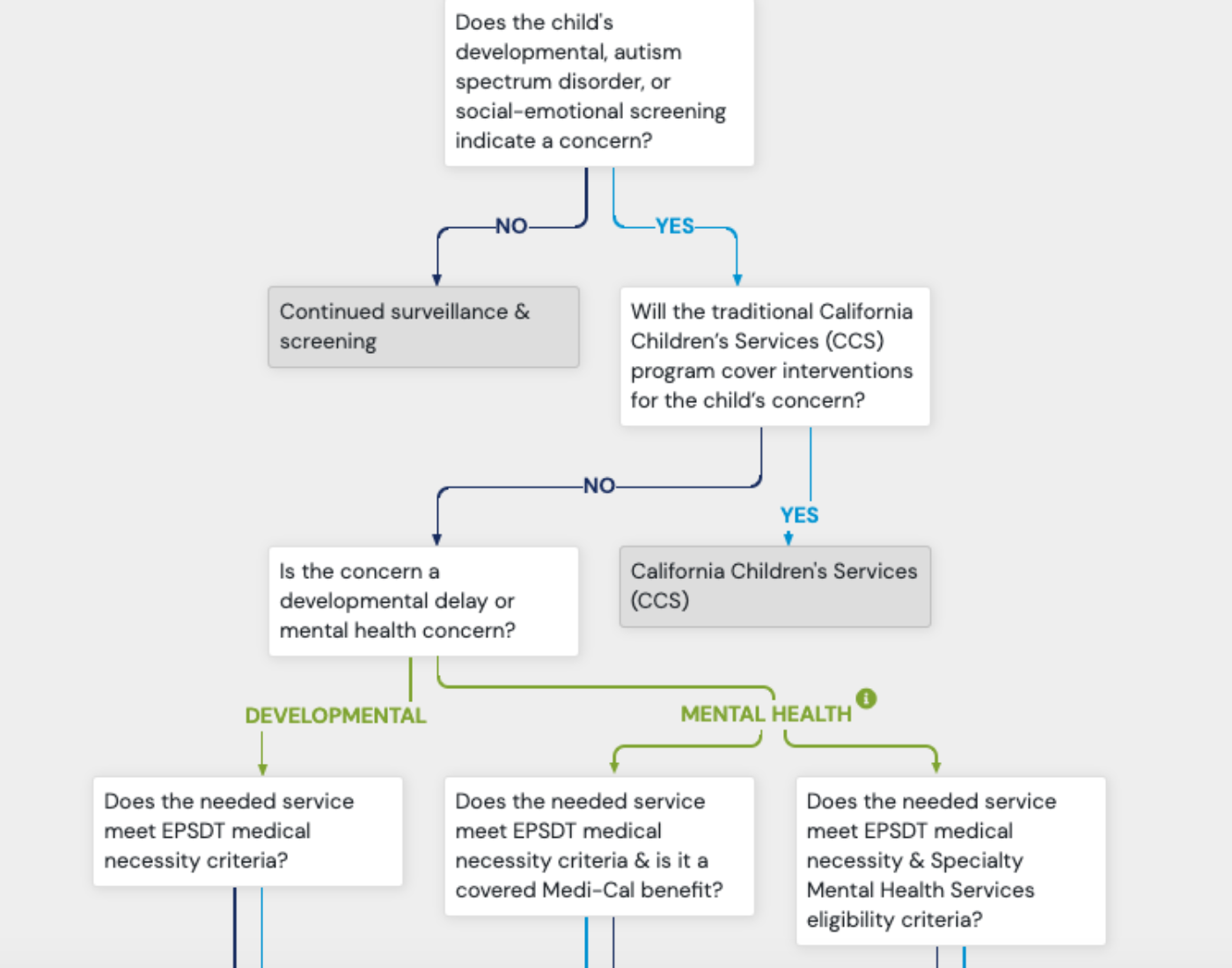Featured Project
Navigating the Early Identification and Intervention Maze: A Flowchart
California’s early identification and intervention (EII) system is complicated. Many players are responsible for supporting young children’s development and mental health. This flowchart describes the system as it is intended to work for children 0 to 3 years old with Medi-Cal insurance.
Learn More